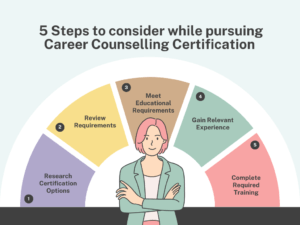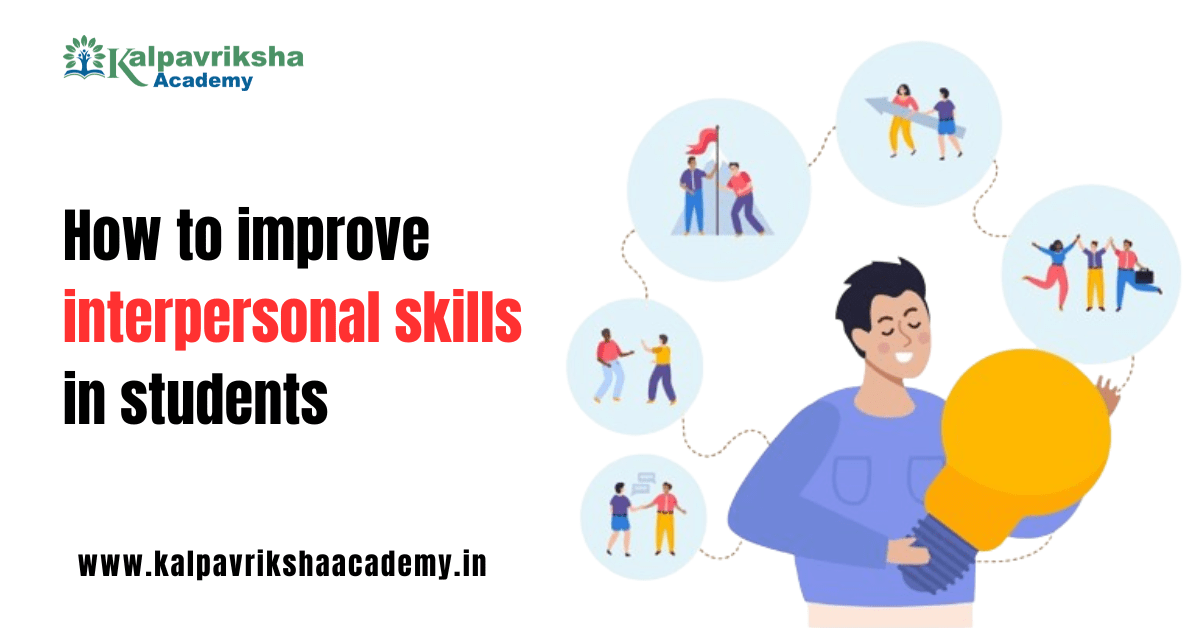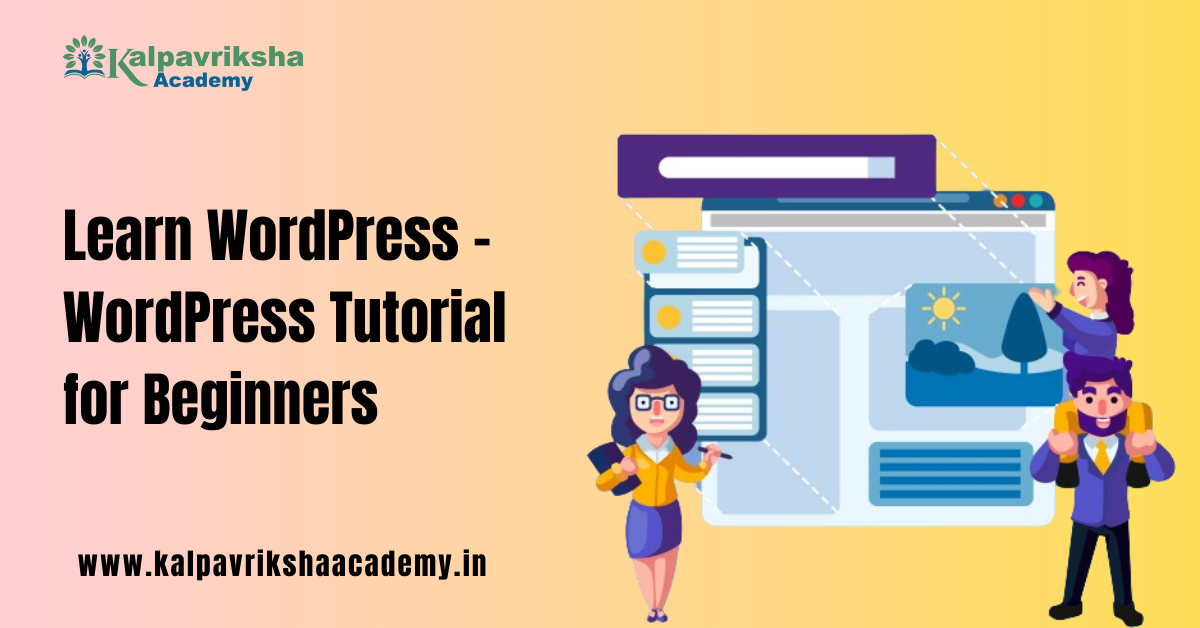Navigating Career Paths through Online Career Counselling
Career counselling is like having a personal navigator on your journey to a fulfilling career. It’s a supportive process where you talk with someone knowledgeable about various job opportunities and career paths. They listen to your interests, strengths, and aspirations, helping you uncover hidden talents and explore potential career options.
Whether you’re a student unsure about which major to choose, a job seeker seeking the perfect fit, or someone contemplating a career shift, career counselling provides invaluable guidance. By understanding your unique traits and goals, career counselling empowers you to make informed decisions that align with your passions and aspirations, setting you on the path to a rewarding and fulfilling career.
What is career counselling?
A professional assists individuals with exploring and identifying their values, interests, strengths, and career aspirations through the process of career counselling. They offer direction, encouragement, and tools to assist people in making well-informed decisions regarding their professional paths. It can involve evaluations, talks, and personalized guidance to assist individuals in effectively navigating their career path.
Introduction to Online Career Counselling
Online career counselling provides a convenient, accessible, and personalized approach to career exploration and development, empowering individuals to make informed decisions about their professional lives.It leverages various digital platforms such as video calls, chat, email, and online assessments to deliver personalized guidance and support to clients.
Here’s an introduction to the key aspects of online career counselling:
- Accessibility: Online career counselling breaks geographical barriers, allowing individuals from anywhere in the world to access professional career guidance. This accessibility is particularly beneficial for people in remote areas or those with mobility constraints.
- Convenience: Clients can schedule sessions at their convenience, eliminating the need for travel and allowing flexibility around work or other commitments. This flexibility makes career counselling more accessible to busy professionals, students, and individuals with demanding schedules.
- Personalization: Online career counselling offers personalized guidance tailored to each client’s unique needs, interests, skills, and goals. Counselors use various assessment tools, interviews, and discussions to understand clients’ strengths, weaknesses, preferences, and aspirations.
- Multimedia Resources: Through online platforms, counselors can utilize multimedia resources such as videos, presentations, and interactive exercises to enhance the counselling experience. These resources can provide additional information about different careers, industries, job search strategies, and skill development opportunities.
- Cost-effectiveness: Online career counselling can be more cost-effective than traditional face-to-face counselling, as it eliminates travel expenses and overhead costs associated with maintaining physical office spaces. This affordability makes career guidance accessible to a broader range of individuals.
What is the importance of career counselling?
Professional counselling is essential because it helps you identify your personal purpose, think through multiple career options, and make well-informed decisions. It provides money, support, and guidance to help you navigate the demanding world of careers. Speaking with a career counsellor can help you gain perspective, set goals, and make preparations for reaching professional success. It’s like having a reliable counsellor who can help you make the right choices and increase your chances.
Who needs career counselling ?
Professional counselling can be beneficial for anyone who is unsure about their professional path, requires assistance in making job decisions, or wishes to explore alternative employment opportunities. Career counselling can provide helpful direction and support to anybody who wants to pursue their career goals, whether they are a professional looking to change careers, a student deciding on a major, or someone else in need.
What is the benefit of career counselling ?
Career counselling offers numerous benefits to individuals at various stages of their professional journey. Here are some key advantages:
- Self-awareness: Career counselling helps individuals gain a deeper understanding of their interests, values, strengths, and personality traits. By exploring these aspects, individuals can identify suitable career paths that align with their unique characteristics and preferences.
- Exploration of options: The world of work is diverse, with countless career paths and industries to consider. Career counselling enables individuals to explore a wide range of options based on their skills, qualifications, and interests.
- Goal setting: Setting clear and achievable goals is essential for career success. Career counselors assist individuals in setting short-term and long-term goals that are aligned with their aspirations and values. They help clients break down large goals into manageable steps and develop action plans to pursue their objectives effectively.
- Skill development: Career counselling can involve assessments and exercises to identify areas for skill development. Counselors offer guidance on acquiring new skills, enhancing existing ones, and addressing gaps that can hinder career advancement. This focus on skill development improves individuals’ competitiveness in the job market and enhances their professional growth.
- Job search strategies: Searching for employment can be challenging and overwhelming. Career counselors provide guidance on effective job search strategies, including resume writing, cover letter preparation, networking techniques, and interview skills.
Key Components of Career Counselling Training Programs
Career counselling training programs typically encompass a range of key components to equip aspiring career counselors with the knowledge, skills, and resources needed to effectively assist individuals in exploring and navigating their career paths. Some of the key components include:
- Theory and Models: Understanding various career development theories and models such as Holland’s Theory of Career Choice, Super’s Career Development Theory, and Social Cognitive Career Theory. Trainees learn how to apply these theories in practice to help clients understand their interests, values, skills, and personality traits in relation to career choices.
- Career Development Process: Exploring the stages of career development and understanding the factors that influence career decision-making. Trainees learn how to support clients at different stages of their career development journey, including exploration, decision-making, and implementation.
- Professional Development: Continuing education and professional development opportunities for career counselors to stay updated on the latest trends, research, and best practices in the field. This can include attending workshops, conferences, and networking events, as well as pursuing advanced certifications or degrees.
5 Steps to consider while pursuing Career Counselling Certification
Pursuing a career counselling certification can be a significant step for individuals looking to formalize their expertise in the field and enhance their career prospects. Here are some steps you should consider when pursuing career counselling certification:
- Research Certification Options: Begin by researching different certification programs available in career counselling. Look for reputable organizations or associations that offer certifications recognized within the industry.
- Review Requirements: Review the requirements for each certification program you are considering. These requirements can include educational qualifications, work experience, supervised practice hours, and passing a certification exam.
- Meet Educational Requirements: Ensure that you meet the educational requirements for the certification program you wish to pursue. This can involve having a bachelor’s or master’s degree in counselling, psychology, education, or a related field from an accredited institution.
- Gain Relevant Experience: Many certification programs require candidates to have a certain amount of work experience in the field of counselling or career development. Gain relevant experience through internships, volunteer work, or employment in counselling-related roles.
- Complete Required Training: Some certification programs can require candidates to complete specific training courses or workshops in career counselling or related areas. Ensure that you fulfill any training requirements before applying for certification.
Understanding the Value of Career Counselling Certification
Understanding the value of career counselling certification is crucial for individuals considering pursuing certification in this field. Here are several reasons why career counselling certification holds significant value:
- Professional Credibility: Certification in career counselling signifies that an individual has met specific education, training, and experience requirements set forth by a recognized certifying body. This demonstrates a level of competence and expertise in the field, enhancing the individual’s professional credibility.
- Quality Assurance: Certification programs often have rigorous standards and requirements for candidates, including education, supervised practice, and passing a certification exam. By obtaining certification, individuals demonstrate their commitment to meeting these standards, providing assurance to clients and employers of their competence and professionalism.
- Career Advancement: Certification in career counselling can open up new career opportunities and pathways for advancement. Many employers, such as schools, colleges, universities, career centers, and counselling agencies, prefer or require candidates to hold certification when hiring for counselling positions. Certification can also be a requirement for eligibility for certain government or institutional contracts.
- Enhanced Marketability: Holding certification in career counselling can enhance an individual’s marketability in the job market. Certified career counselors often have a competitive edge over non-certified candidates when applying for jobs or seeking clients for private practice. Certification demonstrates a commitment to ongoing professional development and excellence in the field.
- Client Trust and Confidence: Clients seeking career counselling services can feel more confident working with a certified career counselor. Certification provides assurance that the counselor has the necessary knowledge, skills, and ethical standards to provide effective guidance and support in navigating career-related challenges and decisions.
Conclusion
Career counselling training programs are designed to equip individuals with the knowledge, skills, and tools needed to assist clients in exploring and navigating their career paths effectively. These programs cover a range of key components, including theory and models of career development, assessment tools, counselling skills, ethical and legal considerations, and specialized techniques for working with diverse populations.
Upon completion of a career counselling training program, graduates are prepared to work in various settings, including schools, colleges, universities, community organizations, or private practice. They can help clients identify their interests, values, skills, and personality traits, set realistic career goals, and develop action plans to achieve them.
Ongoing professional development opportunities enable career counselors to stay updated on the latest trends, research, and best practices in the field, ensuring they can provide high-quality services to their clients throughout their careers.
FAQs
1.Are career counselling training programs available online?
Yes, there are many online options for career counselling training, including certificate programs and master’s degree programs one of which is given by Kalpavriksha Academy. Online programs offer flexibility for working professionals or those unable to attend traditional on-campus classes.
2.Do career counselling training programs provide hands-on experience?
Yes, many programs include practicum or internship components where students gain hands-on experience working with clients under the supervision of experienced career counselors. These experiences provide valuable opportunities to apply theoretical knowledge and counselling skills in real-world settings.
3.What career paths can you pursue after completing a career counselling training program?
Graduates of career counselling training programs can pursue various career paths, including working as career counselors in schools, colleges, universities, community organizations, or private practice settings. They can also work in human resources, career development centers, vocational rehabilitation agencies, or corporate training departments.














